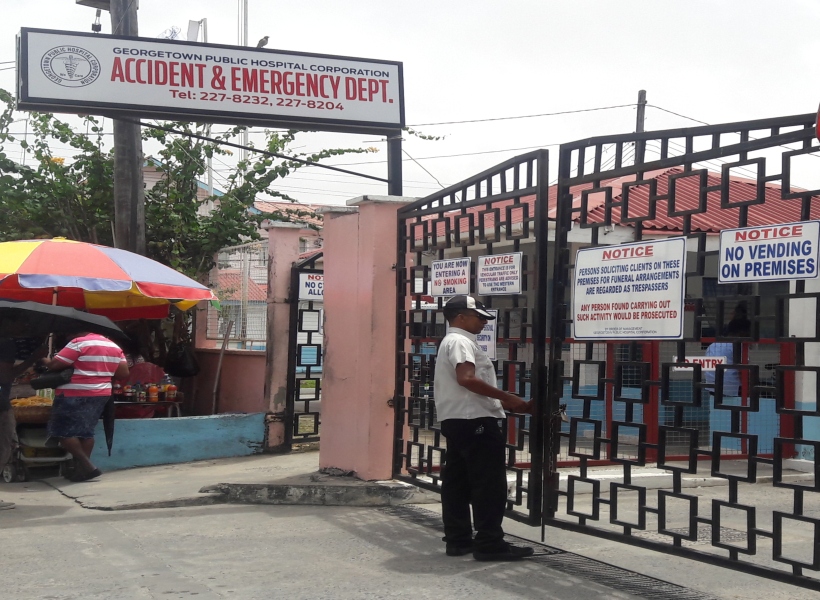The high cost associated with orthopaedic surgeries has caused the Georgetown Public Hospital Corporation to scale down on how many are done annually. But, moves are being made to reverse this reality.
On that front, the hospital recently published expression of interest in hopes that local companies will come on board to supply joint implants and equipment that are usually costly for the hospital to do independently.
Five interested companies have expressed interest in this task and today met with officials of the hospital’s Orthopaedia Department to demonstrate how they can cater to stated needs. Chief Executive Officer of the hospital, Brigadier George Lewis, told the media personnel at a press conference that the challenge faced is to sustain the programme.
To achieve this he said, “We are looking at the acquisition of equipment and materials to sustain the programme thus we have been advertising in the newspapers seeking out companies with the necessary implants and equipment to sustain the programme.”
Added to this, Lewis said that the hospital is also working on development the human resource aspect of the programme by training more doctors and support staff. Currently the hospital’s orthopaedic programme benefits from the expertise of six surgeons along with other support staff. But according to Lewis through a post graduate programme even more persons are expected to be drawn to the programme with higher levels of training.
With an efficient orthopaedic programme in place at the GPHC, Lewis is optimistic that the surgery backlog with be greatly reduced. Additionally, he believes that the hospital will be able to put in place rotating teams which will be able to extend such services to hospitals across the country thereby saving patients the cost of travelling to Georgetown to access this level of medical care.
Plans to improve and expand the GPHC’s Orthopaedia programme comes even as the hospital benefits from technical and other support from Operation Walk, a non-governmental organisation based in the United States, which this past weekend assisted with the completion of 47 orthopaedic surgeries.
“We are continuing to develop this programme it and the intent is that it should be sustainable. We will continue to collaborate with Operation Walk so that we can continue to receive from them technical advice, support and equipment if possible,” said Lewis. The recent surgeries offered to patients at the GPHC were offered at no cost to patients since Operation Walk provided all of the necessary joint implants and equipment to facilitate them. Usually patients are required to pay a subsidized cost of $200,000 to the hospital to facilitate orthopaedic surgeries at the GPHC. However, at private institutions such operations could range from $1.5 to $2 million.













